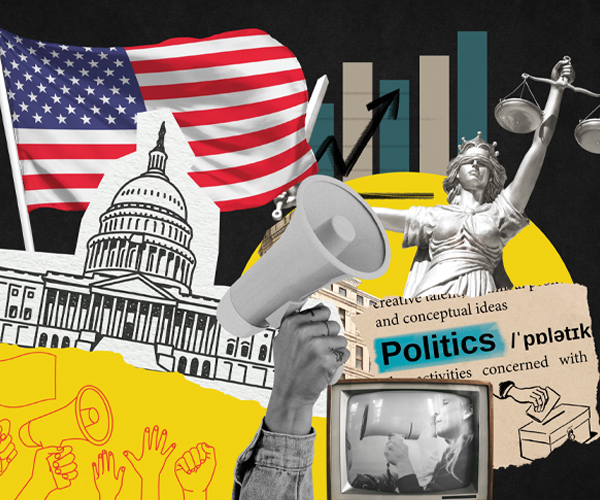There’s battle lines being drawn. Nobody’s right when everybody’s wrong.” — Buffalo Springfield, “For What It’s Worth”
As we reflect on the recent presidential election and a new president, many enter this new year with mixed feelings of hope and anxiety. I want to share some thoughts about where we go from here.
Most of us live in a bubble. We engage in what is called “confirmation bias.” That is, we search for or interpret information in a way that confirms our own preconceptions. We actively seek out and assign more weight to evidence that confirms our views, and ignore or under weigh evidence that contradicts our views. This tendency to look for people and information that confirm our own views has been accelerated and enhanced by Google, Facebook and other internet platforms which use the personal data they collect about us to tailor our online experiences.
The result is that most of us live in what is referred to as a “filter bubble.” We receive information that confirms our beliefs rather than challenges us, leaving us in digital echo chambers and ideological cul de sacs. It is my hope that we can use the presidential election as one of those teachable moments that helps us get out of our bubbles.
Regardless of who you supported, one thing is very clear. President Donald Trump inherits a divided country and a dysfunctional, hyper-partisan Congress. It’s too simplistic to label it as red versus blue or liberal versus conservative. We are divided along demographic and geographic fault lines — race, culture, gender, generation, education, income and rural versus urban. Too many Americans feel left out of the growing economic prosperity in many of our cities and metro regions. There is a growing disconnect between older, primarily working class whites and our increasingly diverse and globalized country. For these Americans, their vote was a primal scream not only for change, but for attention.
Rapidly accelerating technology and globalization, the blurred lines between objective news, biased news and fake news, all-too-frequent police shootings of people of color and senseless murders of police officers, growing racial and cultural diversity — all these things have the capacity to unite us through hope, dignity, respect and progress or to tear us further apart through anxiety, fear, bigotry and scapegoating.
Virtually every war, every conflict, every argument, every debate and every divorce comes down to just one thing — not listening. Today, especially in our national politics, we talk past each other, deliberately ignoring points of agreement for fear of losing political points and advantage. For our country to begin to heal, we must remind each other of our common destiny. We must appeal, in President Abraham Lincoln’s words, to “the better angels of our nature.”
Whether President Trump has a mandate is in the eye of the beholder. But all of us have a mandate to do a much better job of talking and listening to each other across demographic, racial, political and ideological lines.
As interim dean of Cleveland-Marshall College of Law, every day I see opportunities to train and educate a future generation of leaders who value civility, diversity, inclusion and respect as essential not only to the future of the legal profession but to our way of life. When I watch our students deliver their arguments in moot court, I am reminded that the best oral advocates are able to take a position with which they personally disagree. Moot court requires our students to step outside the constraints of their own immediate, biased-filter bubbles.
Our diverse, talented faculty, students and staff come together every day to teach and learn in ways that are collaborative and spirited. We are working to foster a supportive, respectful, responsive environment in which there can be vigorous debate about the issues that shape our future. We seek to be a place where we welcome and celebrate diverse viewpoints but where we share common values. We aspire to be a law school which values the free exchange of ideas and, with it, difficult and necessary conversations among people of good will and good faith.
We teach that all lawyers must understand not only their clients’ positions and interests but the complex motivations and positions of all parties.
We want our students to understand that reconciling differences is as important as winning cases. Our faculty teaches that even as a lawyer zealously advocates for her clients, she must remain committed to the ethical practice of law and civility. We are striving to produce highly competent, deeply compassionate lawyers who see the practice of law as a calling to serve others, and we are committed to graduate students who are not only successful professionals, but open-minded leaders, change makers and advocates of justice.
We are educating a new generation of leaders who, as Steven Covey notes in The 7 Habits of Highly Effective People, “seek first to understand, then to be understood.”
***
Lee Fisher is interim dean and visiting professor of law at Cleveland-Marshall College of Law. He served as Ohio attorney general, Ohio lieutenant governor and president and CEO of CEOs for Cities.




